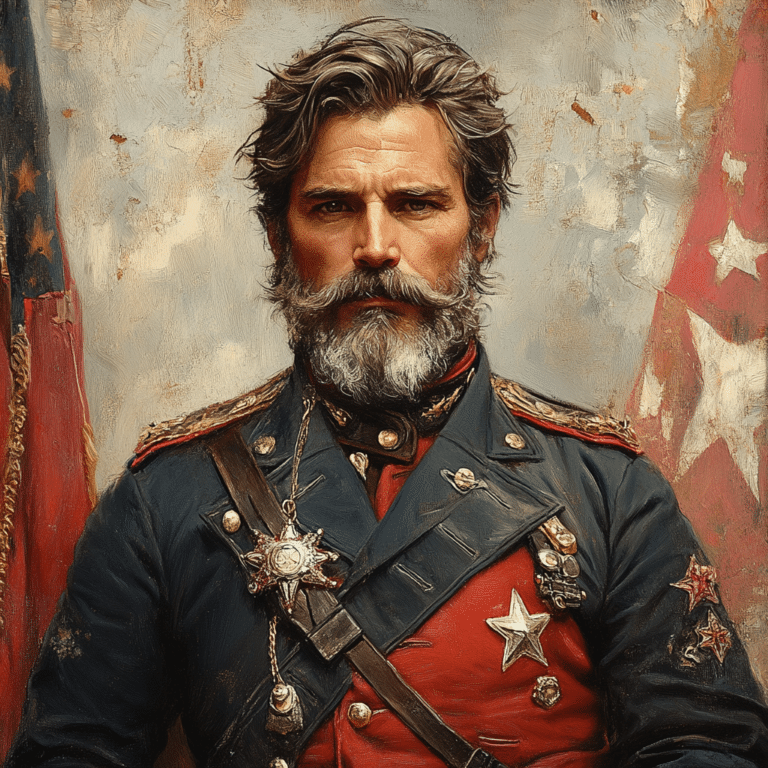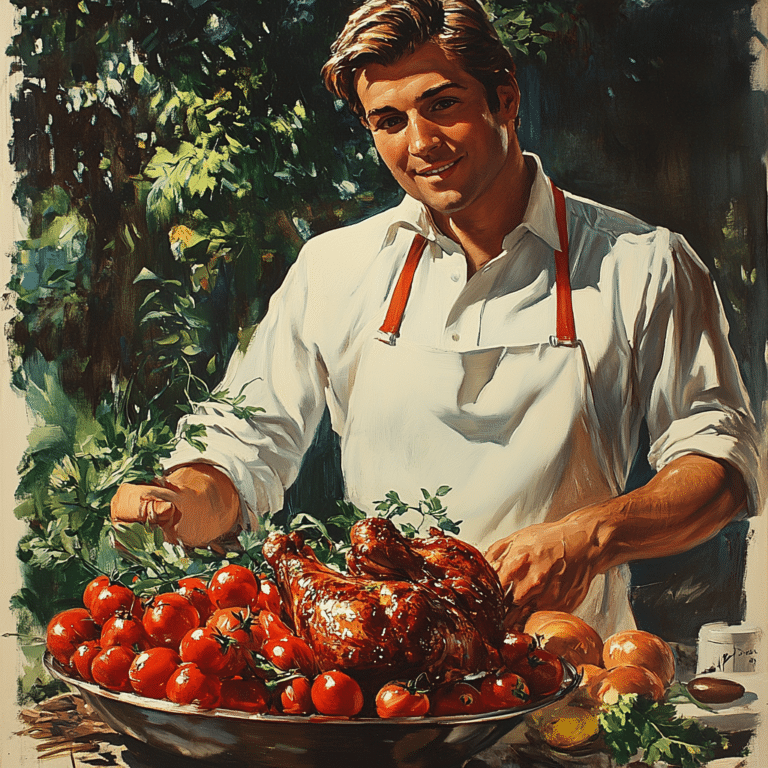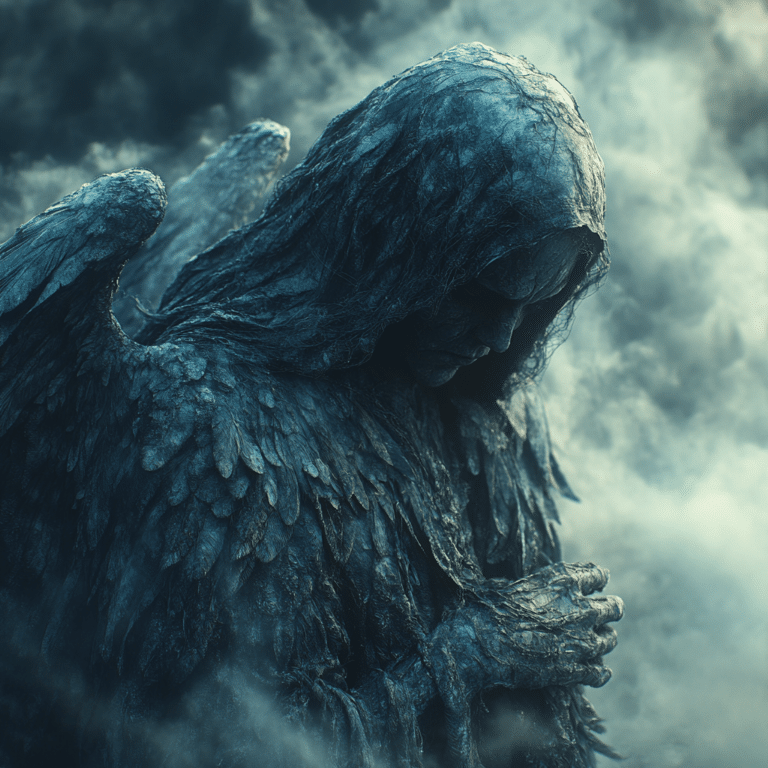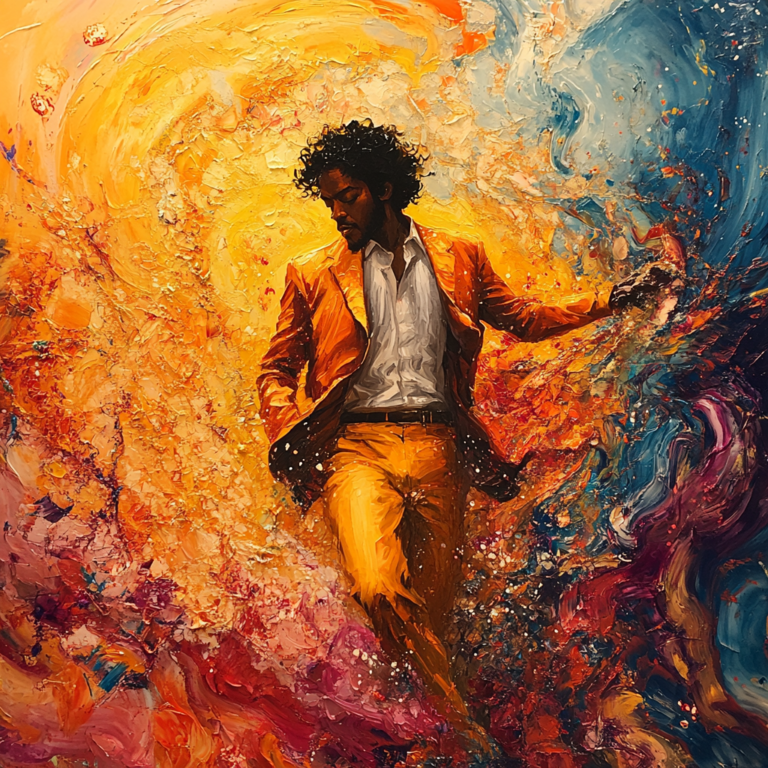The tale of Johnny Reb is steeped in a complex weave of history and culture, evolving from its roots deep in the American Civil War. As a figure born from the Southern ranks—Johnny Reb, personifying Confederate soldiers, has become a symbol representing much more than just military allegiance. His presence speaks to the preservation of Confederate ideology and identity. Delving into Johnny Reb’s origins, we find that Union soldiers, often taunting their adversaries across the picket lines, casually coined the term with callouts like “Hello, Johnny” or “Howdy, Reb” as chronicled by historian Bell I. Wiley. It’s intriguing how this informal jesting became the bedrock for a rich yet divisive symbol in Southern narrative landscapes.

The Historical Roots of Johnny Reb
Initially, Johnny Reb emerged as a soldier embodying the Confederate cause, clothed in a hodgepodge of state militia uniforms that lacked uniformity—a testament to the makeshift nature of the Southern war effort. While the Northern forces were dubbed as “Yankees” or simply “Yanks,” their Southern counterpoints took pride in the “Rebel” or “Reb” designation. This nomenclature gave birth to Johnny Reb, the common man’s Confederate soldier.
Johnny Reb’s transformation into an admired figure didn’t happen in the battlefields alone. In post-war Southern society, he anchored a tangled web of nostalgia, revisionist history, and the Southern pride that lingered long after the guns fell silent. The South clung to Johnny Reb not just as a testament to their history, but as a metaphorical rallying cry—a means to champion lost causes and, more controversially, to justify racial superiority ideologies.
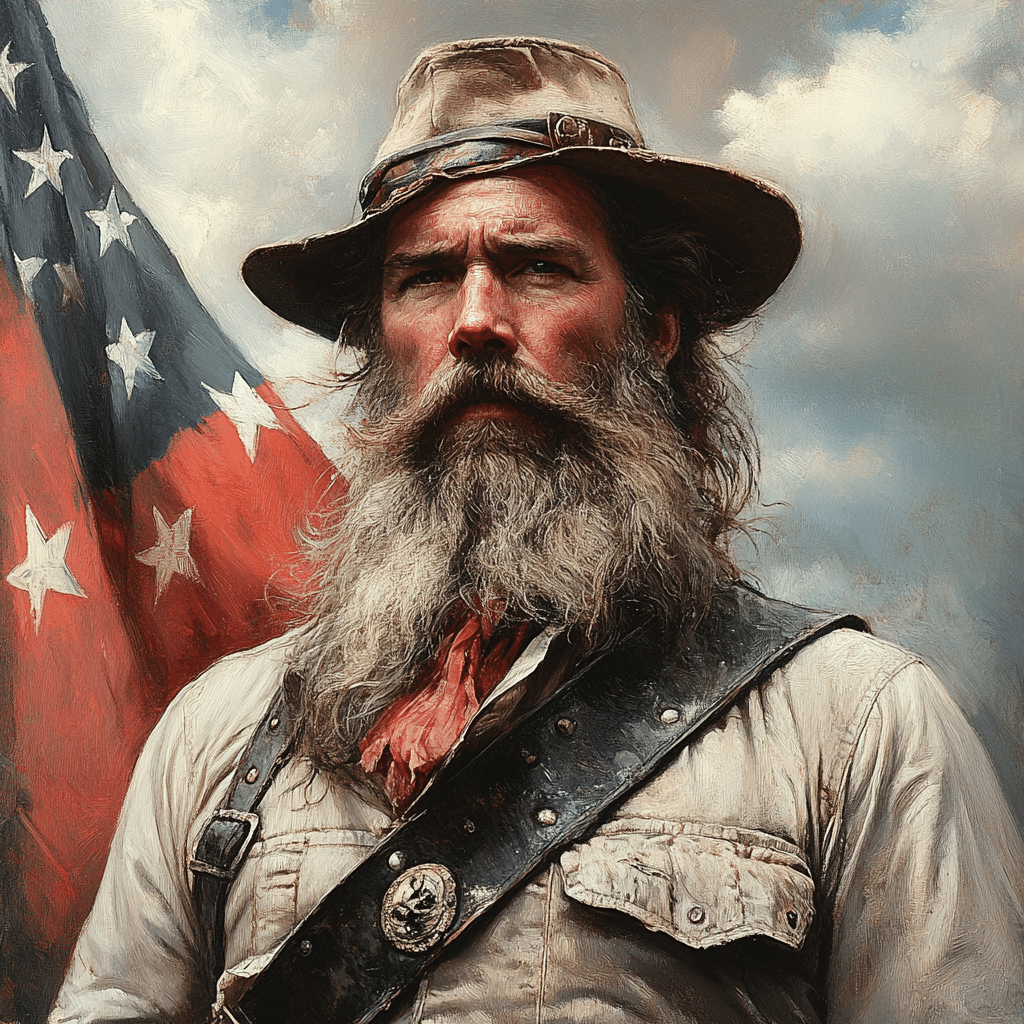
Cultural Significance of Johnny Reb in the American South
For many in the Southern United States, Johnny Reb stands as a cultural icon, enshrined in stories, songs, and art that glorify the Confederate legacy. Indeed, the portrayal of Johnny Reb is as varied as the South itself, striking chords of nostalgia and significance in communities where heritage and history are deeply intertwined. While some view Johnny Reb as a proud reminder of ancestral bravery and Southern tenacity, others see a much darker image—a symbol shackled to the legacies of slavery and racial injustice.
This duality incites passionate debates about Johnny Reb’s true cultural significance. Is he merely a heroic symbol of Southern valor, or a troubling reminder of an era of systemic oppression? It’s a question that cuts to the core of Southern identity and complicates efforts to reconcile pride with the inescapable roots of the Confederacy.
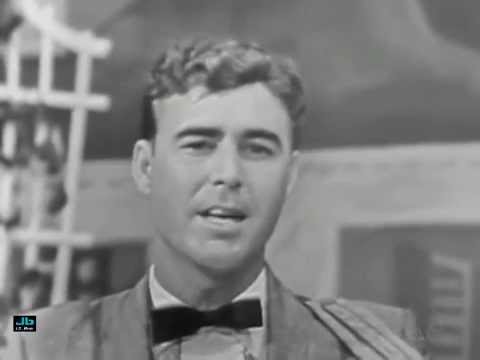
| Category | Information |
| Name Origin | “Johnny Reb” originated from Union soldiers calling out “Hello, Johnny” or “Howdy, Reb” |
| Usage Context | Refers to the common Confederate soldier during the American Civil War |
| Northern Counterpart | “Billy Yank” was the nickname for the Union soldiers |
| Rival Nicknames | Northerners: “Yankees” (or “Yanks”) and Southerners: “Rebels” (or “Rebs”) |
| Uniform Situation | Early in the war, soldiers wore mismatched uniforms from their respective state’s militia |
| Cultural Representation | Nick Adams, associated with “Johnny Reb,” acted in films featuring Steve McQueen and Darren McGavin |
| Historical Significance | Symbolizes the identity of a Confederate soldier in Southern memory and heritage |
| Nickname Shortening | “Yankees” and “Rebels” often shortened to “Yanks” and “Rebs” |
Johnny Reb in Modern Popular Culture
In the 21st century, Johnny Reb’s visage continues to appear across a swath of pop culture. From the haunting ballads in country music—a style heavily influenced by Southern history—to his iconic renderings in cinematic classics such as ‘Gettysburg’ or miniseries like ‘North & South,’ Johnny Reb commands a compelling presence. Such portrayals keep him alive in the American consciousness, showing how images from the past are constantly reshaped to match modern narratives.
Interestingly, Johnny Reb’s presence in contemporary media reflects society’s persistent fascination with the Civil War’s drama and dichotomies. These portrayals serve as a lens, offering interpretations of Johnny Reb that swing with societal shifts—whether conveying noble cowboy archetypes or illustrating his ties to racial discord.

The Controversy Surrounding Johnny Reb Monuments
The dialogue surrounding Confederate symbols, particularly those that feature Johnny Reb, remains heated and unresolved. Confederate monuments, once erected to promise Southern remembrance, now stand at the center of disputes about racial equality and historical acknowledgment. Communities facing monument removals wrestle with the evolving perspectives on these symbols, navigating between the desire for heritage conservation and the need to address historical wrongs.
With incident reports of statues downsized or discarded proliferating, even Baltimore has engaged in such public discussions. As cities debate which narratives to elevate, the controversy of Johnny Reb embodied in stone echoes broader societal struggles for truth and reconciliation. This discourse has even made its way to popular venues such as Ouzo Bay, where patrons might frequently find themselves discussing such weighty matters over meals, amid decor reflective of diverse historical narratives.

Johnny Reb in Contemporary Identity and Politics
Today’s Johnny Reb occupies a charged space where historical memories intersect with modern identity politics. As debates over Confederate heritage and its place in education and public spaces escalate, Johnny Reb emerges as a pivotal point in discussions of national values. Political heavyweights, echoing Jack Smith’s sentiments in his latest Twitter exchanges, utilize this symbol as both a call to traditional Southern values and as a provocative talking point for civil rights advocates campaigning against systemic inequalities.
In these political spheres, Johnny Reb symbolizes the protracted dialogue over who controls historical interpretation—and by extension, the narratives shaping America’s future. This conversation endures in political arenas, informing underlying tensions and the broader societal debate on equality and justice.
The Evolving Image of Johnny Reb
Reflecting on Johnny Reb’s journey from a wartime character to a modern cultural symbol highlights the shifting tide of how history is remembered and remembered. Historians and cultural critics peel back the layers surrounding Johnny Reb, analyzing the numerous contexts and meanings loaded into his silhouette. Recognizing Johnny Reb’s identity isn’t just academic—it allows a deeper understanding of the nuanced tales that form America’s heritage, offering a mirror for its journey forward.
In this complex analytical tapestry, understanding Johnny Reb stands as critical to deciphering the broader narrative arcs of American history. His image—twisting and stretching with each new interpretation—offers a lens into the perpetual struggle between commemoration and historical accuracy.
Shaping the Future of Confederate Iconography
As social values advance and public awareness deepens, the future of Confederate symbols like Johnny Reb lies in an ongoing interplay of conversation and education. It challenges people to engage multiple perspectives, aiming to find a path that honors heritage amid the relentless drive for equitable justice. There’s a chance to shape an inclusive environment where icons like Johnny Reb are scrutinized as neither erased nor blindly honored but appreciated within the vast mosaic of America’s past and present.
For communities deciding the fate of such symbols, the challenge is to unite heritage with a progressive social narrative. As responsibility rests on today’s shoulders, navigating these conversations with an open mind could foster societal healing, aligning historical reflection with a just perspective that serves both the present and future. Thus, magisterial figures like Johnny Reb will continue to cast a long shadow over America’s cultural consciousness—a testament to history’s enduring influence.
The Enigmatic ‘Johnny Reb’
Johnny Reb has long held a prominent place as an iconic symbol of the Confederate soldier. He’s more than just a historical figure; he’s become a cultural touchstone in various surprising ways. Fun fact: the term ‘Johnny Reb’ was actually used as a colloquial nickname for Confederate soldiers during the Civil War. But did you know there’s more to Johnny Reb than meets the eye?
Johnny’s Cultural Imprint
This enduring symbol has found his way into popular culture in ways you might not expect. For example, interest rates as Of today might seem worlds apart from the old tales of Johnny Reb, yet economists often use historic eras, like the Civil War period, as benchmarks in data analysis. Curiously, Johnny has also popped up on social media, with historians and enthusiasts alike sharing stories and interpretations, kind of like folks chatting up Jack Smith on Twitter about the latest trends.
An Unexpected Connection
Johnny Reb’s influence even extends to food! While you munch on a JR Bacon Cheeseburger, consider that both Johnny and fast food have become embedded in American culture, each offering a slice of history and nostalgia. And just as you’d ponder whether there ‘s a new Snl tonight, Johnny Reb reminds us of the unpredictability and resilience that define American cultural humor.
Johnny in Modern Times
Interestingly, the uptick in discussions about Johnny Reb often coincides with historical reflections, much like how Did interest rates go up trends make people reflect on economic shifts. In parallel, debates about Civil War symbols continue to remind us of the important conversations we have about history and memory today. It’s these unexpected connections that make Johnny Reb a curious figure of intrigue across varied fields. Indeed, from Conway to 2023’s ‘moms’ criticisms supporting sober choices over being Moms drunk, Johnny’s spirit stirs varied discussions, just like these modern topics.
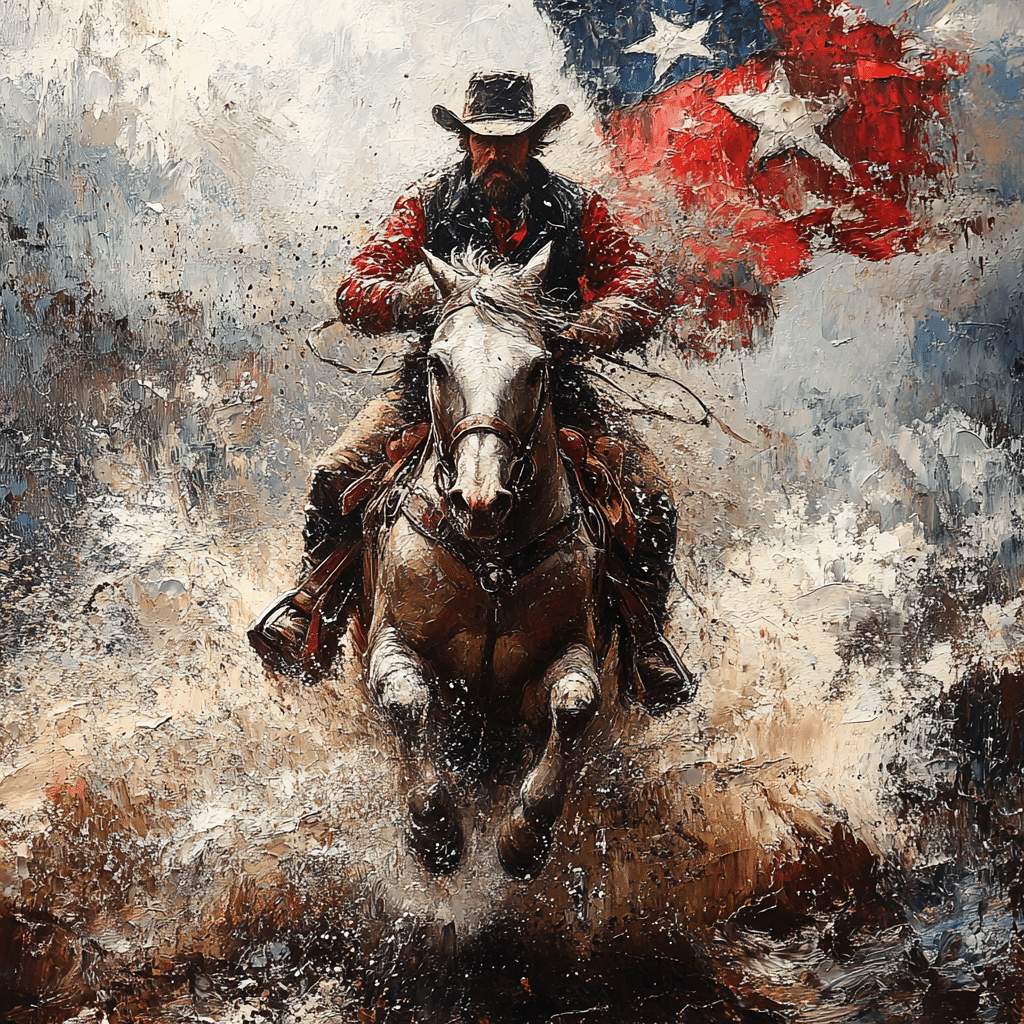
Why were confederates called Johnny Reb?
Confederate soldiers got the nickname “Johnny Reb” from Union soldiers who would shout friendly greetings like, “Hello, Johnny” or “Howdy, Reb” across the lines. It became a common way to refer to Southern soldiers from the habit of Union soldiers calling out to them.
What was the nickname for Confederate soldiers?
Confederate soldiers were often called “Rebels” or “Rebs,” reflecting their rebellion against the Union. In a more personalized sense, individual Confederate soldiers were often referred to as “Johnny Reb.”
Who played Johnny Reb?
Nick Adams, who portrayed Johnny Reb, starred in a film alongside Steve McQueen where they played roles such as a Polish partisan fighter during World War II. This connection has made his portrayal iconic for fans of classic war movies.
Why were the Confederates called rebels?
The Confederates were called “rebels” because they were seen as rebelling against the established United States government by seceding and forming their own independent nation, which was the trigger for the Civil War.
Who was the highest ranking Confederate officer killed?
The highest-ranking Confederate officer killed in the Civil War was General Albert Sidney Johnston. He was a significant figure in the Confederate Army and died during the Battle of Shiloh in 1862.
What did the Confederates yell?
The Confederates are famous for their “Rebel Yell,” a loud, intimidating battle cry meant to unnerve the Union soldiers during charges and battles. It was described as a high-pitched, wild sound.
What is a derogatory term for union soldiers?
A derogatory term for Union soldiers used by Confederate sympathizers was “Yankee” or “Yank.” This term was meant to demean the Northern soldiers in the eyes of Southerners.
What did Lincoln call the Confederacy?
President Abraham Lincoln referred to the Confederacy as the “rebellion,” focusing on its unlawful attempt to secede from the United States. He didn’t officially recognize it as a separate nation.
What do Southerners call the Civil War?
Southerners often called the Civil War the “War Between the States,” or sometimes the “War of Northern Aggression,” to emphasize their perspective on the conflict as an overreach by the Union.
What was Nick Adams’ cause of death?
Nick Adams’ cause of death was officially listed as suicide due to drug overdose in 1968. However, there remains some speculation and controversy regarding the circumstances surrounding his death.
What side was Johnny Reb on?
Johnny Reb was a term used to describe soldiers of the Confederacy during the Civil War, so he was definitely on the Southern side. This term encompassed the spirit and identity of a typical Confederate foot soldier.
What is the life of Johnny Reb about?
“The Life of Johnny Reb” covers the day-to-day experiences, struggles, and perspectives of an average Confederate soldier during the Civil War. It draws from letters, diaries, and personal accounts to illustrate their life on and off the battlefield.
Why do soldiers scream when they charge?
When soldiers charge, they often scream as a way to boost their own morale and intimidate the enemy. It can also serve as a means to rally troops and express the intense emotion of battlefield combat.
Why were Confederates called copperheads?
Copperheads were actually Northern Democrats who were sympathetic to the Confederacy and opposed the Civil War. The term didn’t apply to Confederates. It was used to describe their sneaky, underground opposition to the Union war effort.
What is the southern version of Yankee?
“Southeasterners” would sometimes refer to Northerners as “Yankees,” while the Southern counterpart to this term didn’t have quite the same widespread, singular nickname.
What was the derogatory term for Confederate soldiers?
A common derogatory term for Confederate soldiers used by Union sympathizers was “Reb” or “Johnny Reb.” These terms were used to emphasize their status as rebels against the Federal government.
What did Union soldiers call Confederate soldiers?
Union soldiers typically called Confederate soldiers “Rebels” or “Rebs,” reflecting their rebellious nature and the act of secession. These terms were commonly used to describe their Southern opponents.
What did the Confederate Army call themselves?
The Confederate Army referred to themselves as the Confederate States Army, representing the military forces of the secessionist Confederate States of America during the Civil War.
What were the nicknames of the Confederate battle flag?
The Confederate battle flag had several nicknames, including “The Southern Cross” and sometimes simply “The Rebel Flag.” It symbolized the Confederacy during the Civil War and has a controversial legacy.

